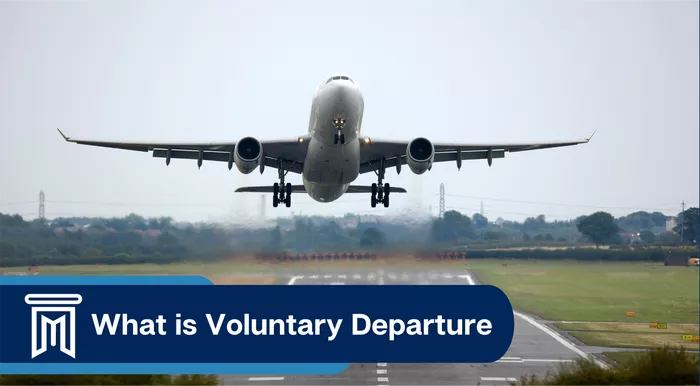Voluntary departure is a crucial aspect of immigration law that allows individuals who are in the United States without legal status or facing removal proceedings to depart the country voluntarily instead of being formally deported. This option provides certain advantages and considerations for individuals navigating the complex landscape of immigration enforcement and procedures.
What is Voluntary Departure?
Voluntary departure, also known as voluntary return, is a discretionary form of relief granted by the Department of Homeland Security (DHS) or an immigration judge to eligible individuals who are facing removal from the United States. It allows individuals to leave the country under their own initiative and avoid the formal consequences of a deportation order.
Eligibility for Voluntary Departure
To qualify for voluntary departure, individuals typically must meet specific criteria set forth by immigration laws and regulations. These criteria may include:
Physical Presence: Applicants must be physically present in the United States at the time of their request for voluntary departure.
Good Moral Character: Individuals must demonstrate good moral character, which generally involves having no serious criminal convictions or moral turpitude offenses.
No Prior Deportations: Some jurisdictions may require that applicants have not been previously granted voluntary departure or been deported from the United States.
Financial Ability: Applicants may need to demonstrate the ability to cover the costs of their departure from the United States.
Cooperation with Authorities: Cooperation with immigration authorities and compliance with any outstanding immigration proceedings are often necessary to qualify for voluntary departure.
Advantages of Voluntary Departure
Voluntary departure offers several potential advantages over formal deportation proceedings:
Avoiding a Deportation Order: Individuals who voluntarily depart avoid having a formal deportation order on their record, which can have significant implications for future immigration opportunities.
Shorter Bar to Reentry: Unlike individuals who are formally deported, those granted voluntary departure generally face a shorter period of inadmissibility if they wish to return to the United States legally in the future.
More Control over Departure Timing: Voluntary departure allows individuals to plan and arrange their departure from the United States on their own terms, which can be less disruptive than being forcibly removed.
Potential for Future Immigration Relief: Choosing voluntary departure may preserve certain eligibility for future immigration benefits or relief options that could be jeopardized by a formal deportation.
Process of Requesting Voluntary Departure
The process of requesting voluntary departure involves several steps and considerations:
Request Submission: Individuals typically request voluntary departure either from DHS or during immigration court proceedings before an immigration judge.
Evidence and Documentation: Applicants must provide supporting documentation to demonstrate eligibility, such as proof of identity, financial ability to depart, and any relevant immigration history.
Decision and Conditions: DHS or the immigration judge will review the request and determine whether to grant voluntary departure. If granted, specific conditions and deadlines for departure will be issued.
Departure Compliance: Individuals must comply with the conditions set forth in the voluntary departure grant, including leaving the United States within the specified timeframe and reporting their departure to immigration authorities.
Consequences of Non-Compliance: Failure to depart as required can result in severe penalties, including a significant period of inadmissibility and potential conversion of the voluntary departure order into a formal deportation order.
SEE ALSO: DEPORTATION: CAUSES, CONSEQUENCES & LEGAL FRAMEWORK
Challenges and Considerations
While voluntary departure offers advantages, there are also challenges and considerations individuals should be aware of:
Financial Burden: Covering the costs of departure, including travel expenses, can be challenging for some individuals.
Strict Compliance: Strict compliance with departure deadlines and reporting requirements is essential to avoid adverse consequences.
Limited Appeal Rights: Unlike some deportation orders, decisions regarding voluntary departure are discretionary and may have limited avenues for appeal.
Impact on Legal Status: Individuals should consider the potential impact of voluntary departure on their legal status and future immigration options carefully.
Conclusion
In conclusion, voluntary departure is a significant option available to individuals facing removal from the United States. It provides a voluntary means of departure that can mitigate some of the more severe consequences associated with formal deportation. Understanding the eligibility criteria, advantages, process, and potential challenges of voluntary departure is essential for individuals navigating immigration proceedings and seeking to make informed decisions about their immigration status and future in the United States.


